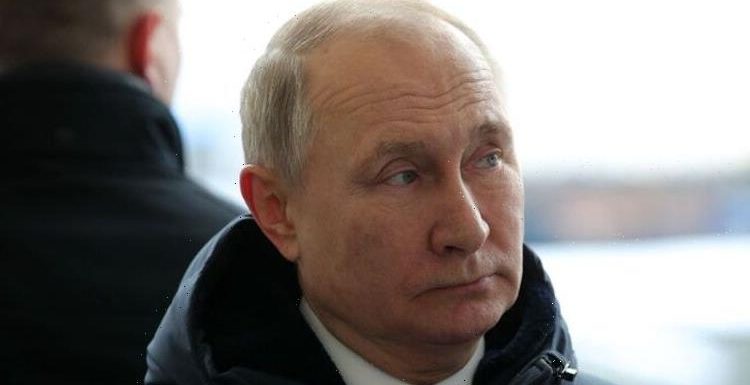
PMQs: Johnson highlights Labour 'u-turn' on nuclear power
We use your sign-up to provide content in ways you’ve consented to and to improve our understanding of you. This may include adverts from us and 3rd parties based on our understanding. You can unsubscribe at any time. More info
Sofia and Athens have drafted a brand new plan for a nuclear power plant which could be part of a 20-year deal. Bulgarian Deputy Prime Minister Asen Vassilev announced in back in February that the goal for the 20-year agreement will involve Greece harnessing Bulgaria’s nuclear power. Sofia is reportedly set to wait for a 12-month expert study, while Bulgaria’s ruling coalition will need to come to an agreement on the new power plant, EURACTIV reports.
Bulgarian Prime Minister Kiril Petkov said that “concrete proposals” can be expected to be put to Greece within those months.
Mr Petkov told Greek outlet Kathimerin:: “Cheaper electricity is needed. We have nuclear energy, you don’t.
“Putting these things together we could work together as good neighbours, building a long-term relationship by building nuclear power to produce energy for common benefits in a sector that is a significant alternative to energy shortages in our region.”
Mr Vassilev has said that the nuclear project can be built “extremely quickly” as there is already a buyer for electricity that would be generated via the plant.
Mr Petkov told Kathimerin: “We are considering the candidate suppliers and are preparing a rapid study of the feasibility of the site.


“Immediately after that, we will come up with concrete proposals to Greece.
“I want to believe that in 12 months we will have a clear picture of what exactly and how we will do it.”
But the project can reportedly not be built quicker than the minimum deadline of six to eight years, with the price still not specified.
And Bulgaria also appears to be scrambling to ramp up its nuclear fleet since the two reactors it purchased from Russia cannot be installed due to the war in Ukraine.
This also comes as the EU has been attempting to wean itself off Russian energy, with a plot to slash imports of oil and gas by two thirds by the end of the year.

It is also aiming to completely scupper ties by 2030.
But Germany – which is set to shut down its last remaining nuclear plants by the end of the year to draw a long phase-out to a close – has been slammed for hamstringing tough action from being taken on Putin.
Critics say Berlin’s nuclear phase-out has made it more dependent on Russian supplies, importing a staggering 55 percent of its gas from Russia last year.
Ukrainian President Volodymyr has even unleashed his fury at Germany for prioritising “economy, economy, economy” over the people of Ukraine.
This is because the country appears to be hampering the EU from taking a tougher stance as it continues to hand Putin billions for imports.
DON’T MISS
Solar storm warning: ‘Radiation risk’ as ‘major’ event rocks Earth [REVEAL]
Putin’s plot to hold Germany to ransom could end in disaster [INSIGHT]
Denmark stockpiles 2 million iodine tablets as nuclear fears soar [REPORT]


But Germany is not the only country against sanctioning Russian energy, with Austria, Hungary and Italy all exempted an oil ban earlier this month.
The has stoked division in the bloc as a furious bust-up has erupted, with France (which gets 70 percent of its electricity from nuclear), Poland and
Lithuania are eager for harsher punishments on Russia.
But the entire European Commission is taking the heat after the European Parliament blew its top at Commission President Ursula von der Leyen for refusing to slap down embargos on Russian oil and gas.
It came after the EU Parliament voted overwhelmingly in favour of an immediate ban on all of Russia’s fossil fuels.
Source: Read Full Article